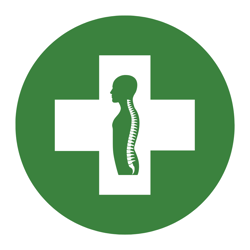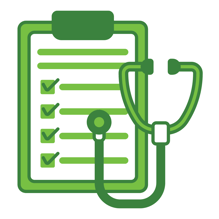How to Help a Family Member When a Spinal Cord Injury is New
When a spinal cord injury occurs to someone you love, you'll naturally want to do everything you can to help them recover. During the first 1 to 2 months however, after a spinal cord injury, things can be so stressful that it can be overwhelming to think about the appropriate steps needed to help your loved one. The list below will help guide you during this difficult time, highlighting all of the important things you can do to assist.
Sign Up for SSDI & Medicare/Medicaid
Having a severe spinal cord injury makes your loved one eligible for several helpful government programs, most notably SSDI/SSI, Medicaid, and Medicare to help pay their healthcare costs and daily living costs. Many people are under the false impression that they will be automatically enrolled if they sustain a spinal cord injury, but this is not the case. It is up to you or your social worker to make sure the paperwork is filed.
In order to apply for SSI/SSDI, you can help your loved one apply online at https://www.ssa.gov/locator and make sure to select "Apply for Disability Benefits." You can also return to this page to check your application status after it has been submitted. It can take anywhere from 6 to 8 months to receive a decision, so make sure to apply right away, especially if your loved one will be in need of these funds and healthcare coverage.
When it comes to Medicare, you can apply online using the same site. Make sure to click "Apply for Medicare benefits.” And finally, Medicaid is another important healthcare program that’s run by each individual state and pays for things like caregivers that will help your loved one once they return home. To apply for Medicaid in the state where the injured person will be residing, search for that state's Medicaid Office and follow the application steps.
Start Physical Therapy ASAP
As long as your loved one is in stable condition, it is important that physical therapists and occupational therapists begin to visit your loved one bedside as soon as is possible. In order to achieve the best recovery possible, this is critical and is important so that the stiffening of the muscles does not occur, as well as skin breakdown from not moving in bed. Having therapy in the first couple of weeks may seem too early, but it is a great thing.
Get a Social Worker
Making sure your loved one has a social worker is crucial. You'll need to enroll them with a social worker and there are many ways to do this. One of the easiest ways is to ask your doctor if they are part of a hospital or university network and then ask for a referral for an appointment with a social worker in their system.
You can also search for a social worker in the county where they'll be living by contacting your local Department of Social Services or try contacting the Center for Independent Living located nearest to where your loved one is living and ask for their referrals for social workers. Remember, a social worker is critical in making sure your loved one receives all of the programs they are eligible for, as well as helping them find accessible housing once they’re ready to leave the hospital.
Consider an SCI Model System Hospital
When it comes to spinal cord injuries, the care is not the same at every hospital. It is best to have your loved ones surrounded by spinal cord injury experts, especially in the first few months. Many families of loved ones with new injuries will search for renowned spinal cord injury rehabilitation hospitals, which are dotted throughout the country. These are known as "SCI Model System Hospitals.” You can find a list of these hospitals here: https://www.sci-info-pages.com/spinal-cord-injury-model-systems/
 SCI Model System hospitals provide the very latest in available treatments and therapy for paralysis. Some of the most popular spinal cord injury rehab hospitals are the Shepherd Center in Atlanta, Georgia, Craig Hospital in Denver, Colorado, and Spaulding in Boston, Massachusetts. There are dozens more across the country. It is important to have the best in rehabilitation as soon as a spinal cord injury occurs, as it ensures the best recovery chances.
SCI Model System hospitals provide the very latest in available treatments and therapy for paralysis. Some of the most popular spinal cord injury rehab hospitals are the Shepherd Center in Atlanta, Georgia, Craig Hospital in Denver, Colorado, and Spaulding in Boston, Massachusetts. There are dozens more across the country. It is important to have the best in rehabilitation as soon as a spinal cord injury occurs, as it ensures the best recovery chances.
Note: It is possible for anyone with a spinal cord injury to be transferred to a spinal cord injury rehabilitation hospital as long as they have Medicaid, Medicare, or personal healthcare coverage.
Create a GoFundMe
A very popular thing to do after a spinal cord injury (instead of an in-person benefit) is to create a GoFundMe account for donations to help the injured person. This online donation portal is open 24/7 and makes it easy for people to donate in a variety of currencies and methods of payment. And a great way to bring attention to your online fundraiser is to create TikToks about your loved one's injury and then funneling those people to the donation link. Also, create a living trust and direct funds to that once the funds are raised. Also, Help Hope Live is another site that offers the same service.
Avoid Long-Term Acute Care
There comes a time when a doctor may ask if you are ok with your loved one being transferred to long-term acute care. You should absolutely avoid these kinds of places as they are not equipped to help people with spinal cord injuries in a full manner (despite what they say). Instead, insist your loved one be admitted to an acute inpatient rehab only. Always make sure to avoid any skilled nursing facility throughout their hospital stay.
Search for Clinical Trials
To give your loved one the best chance of recovery, we recommend looking into clinical trials they may be eligible for. There are spinal cord injury clinical trials happening every day, and people with new/acute injuries are highly prized in many of these studies. A great place to begin looking is the Shirely Ryan AbilityLab in Chicago, Illinois. They're always looking for people with spinal cord injuries to join their clinical trials.
Also, look at:
- SCI Trials - www.SCITrials.org
- The Mayo Clinic - https://www.mayo.edu/research/clinical-trials/diseases-conditions/spinal-cord-injury
- National Institutes of Health - https://www.nichd.nih.gov/health/topics/spinalinjury/clinicaltrials
And lastly, don't forget the mental health of yourself and your loved one. Accessing mental health services, such as therapy, is now easier than ever since it can be done virtually. This is something you should consider if you feel you need to talk to someone to deal with the stress of the trauma of your loved one.
Stay Updated on Advancements On Traumatic Brain &
Spinal Cord Injuries
About the Author





